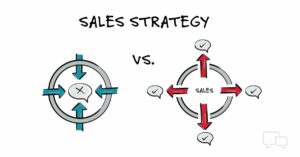Mastering the Clock: A Comprehensive Guide to Time Management

Time, the elusive currency of productivity, demands astute management to navigate the intricate tapestry of our lives effectively. Whether you’re a professional striving for career success, a student juggling academic commitments, or an individual seeking a balanced and fulfilling life, the art of time management is a skill that can transform your journey. In this exhaustive guide, we embark on a deep exploration of time management, unraveling its intricacies, and offering a plethora of strategies to help you harness time as a powerful ally on your path to productivity and success.
Understanding Time Management: A Holistic Perspective
A. Defining Time Management:
- Strategic Resource: Time is a finite resource that requires deliberate planning and allocation.
- Balancing Act: Balancing competing priorities to optimize productivity and achieve goals.
B. Importance of Time Management:
- Enhanced Productivity: Efficient use of time leads to increased productivity.
- Reduced Stress: Proactive time management minimizes stress and promotes a sense of control.
- Goal Attainment: Enables the achievement of short-term and long-term goals.
The Foundations of Effective Time Management
A. 1. Self-Reflection:
- Understanding Priorities: Identify personal and professional priorities.
- Assessing Time Allocation: Evaluate how time is currently being spent.
B. 2. Goal Setting:
- Clarity of Objectives: Clearly define short-term and long-term goals.
- SMART Criteria: Ensure goals are Specific, Measurable, Achievable, Relevant, and Time-bound.
C. 3. Prioritization:
- Eisenhower Matrix: Categorize tasks into urgent and important, guiding prioritization.
- ABC Method: Assign priorities (A, B, C) to tasks based on importance.
D. 4. Time Tracking:
- Activity Log: Maintain a log to track time spent on various activities.
- Identifying Patterns: Recognize trends in time usage for informed adjustments.
Strategies for Effective Time Management
A. 1. Time Blocking:
- Allocating Blocks: Assign specific time blocks to different tasks or activities.
- Focused Attention: Enhances concentration by minimizing multitasking.
B. 2. Pomodoro Technique:
- Work Intervals: Break work into focused intervals (e.g., 25 minutes).
- Short Breaks: Followed by short breaks to maintain productivity.
C. 3. To-Do Lists:
- Daily Planning: Create daily to-do lists to outline tasks.
- Priority Setting: Rank tasks based on urgency and importance.
D. 4. Set Realistic Goals:
- Avoid Overcommitment: Set achievable goals to prevent overwhelm.
- Celebrate Milestones: Acknowledge and celebrate small victories.
E. 5. Learn to Delegate:
- Identify Tasks: Delegate tasks that others can perform efficiently.
- Effective Communication: Clearly communicate expectations when delegating.
F. 6. Eliminate Time Wasters:
- Identify Distractions: Recognize and minimize distractions.
- Time Audit: Conduct periodic assessments to identify and eliminate time-wasting activities.
G. 7. Use Technology Wisely:
- Productivity Apps: Leverage tools and apps for task management.
- Digital Calendars: Sync schedules and set reminders for important deadlines.
H. 8. Batch Similar Tasks:
- Efficient Workflow: Group similar tasks together for streamlined execution.
- Minimize Switching: Reduces mental fatigue caused by task-switching.
I. 9. Time Management Tools:
- Planners and Organizers: Utilize physical or digital tools for planning.
- Project Management Software: Employ tools like Trello or Asana for project coordination.
Overcoming Common Challenges
A. 1. Procrastination:
- Break Tasks Down: Divide large tasks into smaller, more manageable steps.
- Visualize Success: Focus on the satisfaction of completing the task.
B. 2. Burnout:
- Scheduled Breaks: Incorporate regular breaks into your schedule.
- Self-Care: Prioritize rest, exercise, and activities that rejuvenate you.
C. 3. Lack of Motivation:
- Connect with Goals: Remind yourself of the broader purpose behind tasks.
- Reward System: Implement a reward system for completing tasks.
D. 4. Overcommitment:
- Learn to Say No: Evaluate commitments before accepting new ones.
- Quality over Quantity: Prioritize depth of involvement over sheer quantity.
Cultivating Long-Term Time Management Habits
A. 1. Consistency is Key:
- Routine Formation: Establish consistent daily routines.
- Regular Review: Periodically assess and adjust time management strategies.
B. 2. Continuous Improvement:
- Feedback Loop: Solicit feedback on time management from peers or mentors.
- Adaptability: Be open to evolving your approach based on feedback and experiences.
C. 3. Lifelong Learning:
- Skill Development: Continuously develop time management skills.
- Stay Informed: Keep abreast of new techniques and tools.
D. 4. Goal Reassessment:
- Periodic Review: Reevaluate short-term and long-term goals regularly.
- Adjustment: Modify goals based on changing priorities and circumstances.
Time Management in Specific Contexts
A. 1. Academic Setting:
- Effective Study Habits: Implement focused study sessions.
- Assignment Planning: Break down academic tasks and assignments.
B. 2. Professional Setting:
- Project Management: Utilize project management methodologies.
- Meeting Efficiency: Optimize meeting structures and agendas.
C. 3. Personal Life:
- Family Commitments: Communicate and align schedules with family members.
- Leisure Time: Allocate dedicated time for hobbies and relaxation.
D. 4. Entrepreneurship:
- Business Planning: Develop strategic business plans.
- Time for Innovation: Allocate time for creative thinking and business development.
Conclusion: Mastering the Art of Time Management
Time management is not just a tool for efficiency; it’s a gateway to a more purposeful and fulfilling life. By understanding the principles, adopting effective strategies, and consistently refining your approach, you can master the art of time management. Remember that time is a precious resource that, once spent, cannot be reclaimed. Therefore, the investment in honing time management skills pays off not just in increased productivity but in the creation of a life aligned with your goals and values. As you embark on this journey, embrace the evolving nature of time management, and let it become a guiding force in shaping the trajectory of your personal and professional success.




